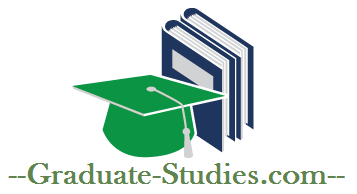Educational theorist David A. Kolb’s experiential learning cycle (ELC) draws on the idea that students have distinctive styles of learning. It’s not enough to use a ‘one-size-fits-all’ approach in the classroom—instead, Kolb proposes a four-step process focusing on meaning and personal motivation.
These four steps are:
- Concrete experience (the student has a meaningful experience applicable to real-world scenarios),
- Reflective observation (the student reflects on what they observed during the experience),
- Abstract conceptualisation (the student uses logical approaches and ideas to understand their observations),
- Active experimentation (the student applies their experience to a new situation).
The learning cycle doesn’t necessarily begin at step one—it can start at any point, but according to Kolb, learners must pass through all four steps for effective learning to occur.
While the experiential learning process is student-centred, teachers still play a crucial role. Let’s discuss how teachers are involved in Kolb’s experiential learning cycle and why they are so important.
Teachers as facilitators
Regardless of strategies used in the classroom, there is one constant—teachers are always at the heart of the educational process. Teachers have the power to facilitate progress and development within the educational sector, driving positive change and improving outcomes for students.
As facilitators, teachers work to put students at the centre of their education, encouraging and passively guiding them through problem-solving and decision-making. For example, teachers may lead a group discussion session, asking driving questions to stimulate deeper thought and open participation.
Teachers as subject experts
Through the experiential learning process, teachers take the role of subject experts, helping students make connections between their learning and real-world scenarios. They must lead by example, modelling positive behaviours and skills such as critical thinking and intrinsic motivation.
Teachers must ensure classroom content is meaningful and relevant to the modern world. This requires continual learning and reflection beyond traditional top-down and formal training—which universities must support by offering teachers scheduled time to learn and innovate.
Teachers as evaluators
Traditional educational approaches require teachers to evaluate performance through constricting rubrics, numbers, and letters that are often arbitrary and confusing to students. Under experiential learning, teachers still act as evaluators, but in a more open and meaningful way.
Some ways teachers can assess experiential learning outcomes include:
- Working with students to create personal learning plans (PLPs) and reviewing their goals throughout the learning process
- Assessment portfolios, allowing students to display tangible outcomes and demonstrate their methods,
- Student-generated rubrics, including personal goals, skills, interests, and strengths.
This way, assessment relates to every student’s unique abilities, providing a thorough evaluation with genuine meaning. You can also adjust rubrics to include certain criteria if necessary, such as 21st-century skill proficiency or job readiness.
Experiential learning, meaning, and relevance
The experiential learning cycle is all about connecting classroom learning with meaningful and relevant scenarios in the outside world. This process helps build intrinsic motivation and, in many cases, significantly improves learning outcomes.
Teachers play a critical role in this process, acting as facilitators, subject experts, and evaluators, to help students discover their path and find success after graduation.
